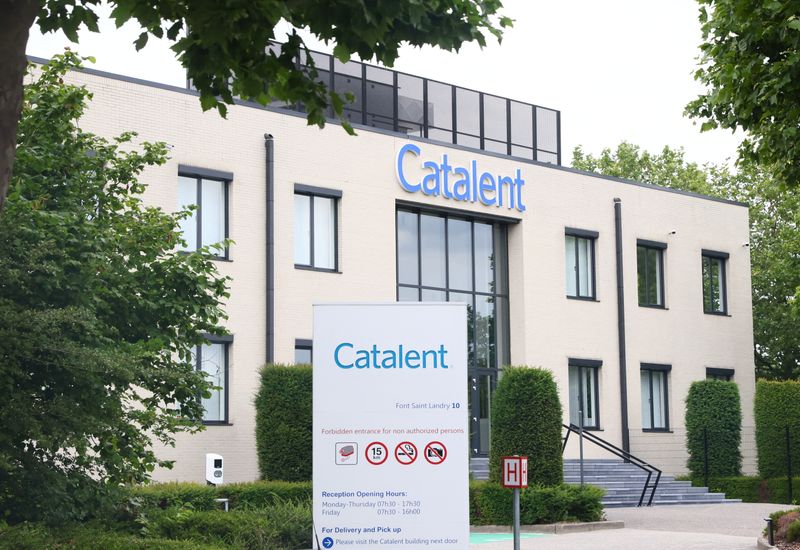By Svea Herbst-Bayliss
NEW YORK (Reuters) – Contract drugmaker Catalent, which is being pushed to make changes to its board by Elliott Investment Management, had at least two other activist investors in its stock at the end of the second quarter, according to new regulatory filings.
Keith Meister’s Corvex Management and Scott Ferguson’s Sachem Head Capital Management each disclosed buying Catalent stock in the second quarter and owning it on June 30.
The moves into Catalent follow a slump in its share price and a drop in revenue after it played a pivotal role in the rapid production of vaccines during the COVID-19 pandemic.
Corvex initiated a new position in Catalent, buying 5.7 million shares during the second quarter, while Sachem Head purchased 662,000 shares during the quarter, also a new position for the fund.
Elliott, which owned a significant Catalent stake in the middle of July, has approached the company to suggest changes and has been speaking with executives who might be suitable to serve on Catalent’s board, sources familiar with the matter said last month.
While Elliott is among the world’s most prominent and busiest activist investors, both Corvex and Sachem Head have in the past targeted other companies and successfully lobbied for board seats.
Representatives for Corvex and Sachem Head declined to comment beyond the filings. The so-called 13-F filings detail what U.S. stocks investment managers own at the end of the quarter. The are made public with a delay and while backward looking, they are watched closely by investors for signs of possible trends.
Activist investors often do not know when rivals are circling a potential target, but since many look for similar characteristics to determine what makes an attractive investment, they can end up in the same stock.
Catalent’s stock price closed at $45.29 on Monday, significantly below $110 where it traded a year ago.
During the pandemic, Catalent was contracted by several companies, including AstraZeneca, Johnson & Johnson and Moderna, to fill vaccine vials at several of its plants in Europe and the United States.
But in June, after delaying results announcements three times, the company said revenue in the three months ending March 31 had fallen 19%. It cut its annual revenue forecast for the second time.
(Reporting by Svea Herbst-Bayliss; Editing by Sonali Paul)
